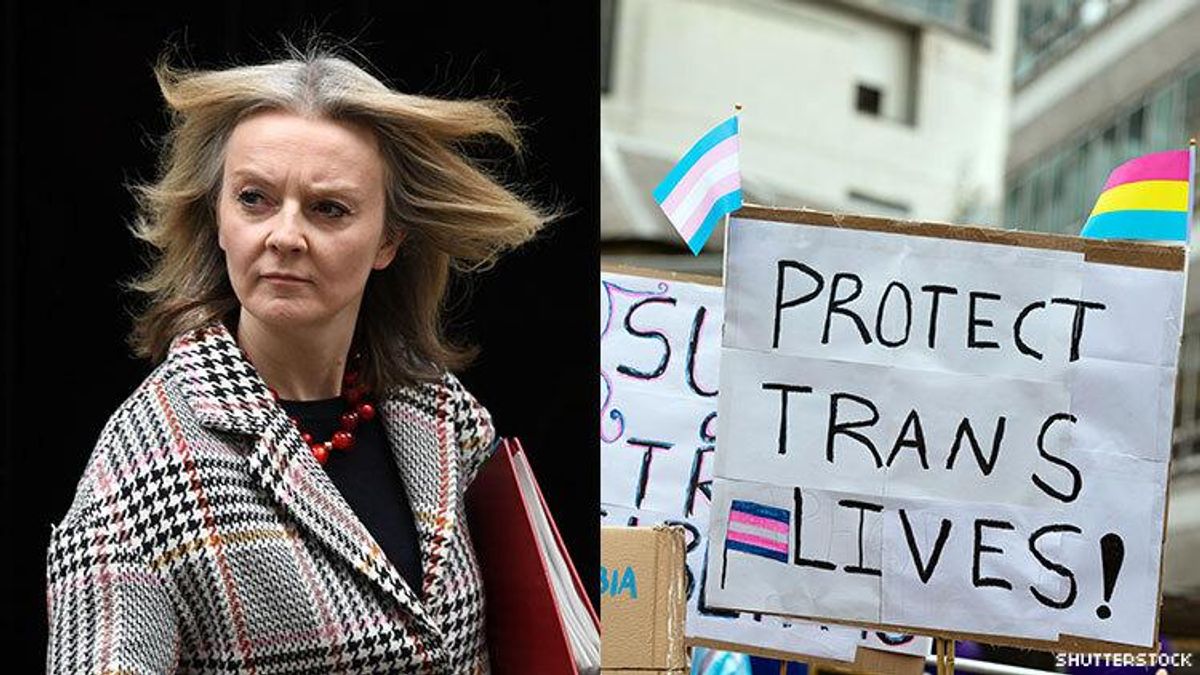Saying she wanted her policies to be "focused around individual dignity, individual opportunity," U.K. Minister for Women and Equalities Elizabeth "Lizz" Truss used veiled language to propose gutting protections for transgender people as part of a departmental reorganization and the ongoing reform of the 2004 Gender Recognition Act.
She said one of the guiding principles of the efforts should be "making sure that the under-18s are protected from decisions that they could make that are irreversible in the future," an apparent reference to gender-confirmation procedures.
"I believe strongly that adults should have the freedom to lead their lives as they see fit," the veteran politician and policymaker said in a speech delivered online Wednesday to Parliament's Women and Equalities Select Committee. "But I think it's very important that while people are still developing their decision-making capabilities that we protect them from making those irreversible decisions."
The minister's comments raised red flags from U.K. LGBTQ activists like Laura Russell, director of campaigns, policy, and research at Stonewall.
"This is concerning because it sounds similar to how young lesbian, gay and bi people were spoken about in the 1980s," Russell wrote in a blog post. "When Stonewall was campaigning to oppose Section 28, we were often told that young lesbian, gay and bi people are impressionable, vulnerable and don't understand themselves. Today, we know this simply isn't the case and is thankfully something we hear far less often."
Section 28 refers to the 1988 clause that was added to the Local Government Act that declared local authorities could not "promote homosexuality or publish material with the intention of promoting homosexuality" or "promote the teaching in any maintained school of the acceptability of homosexuality as a pretended family relationship." The discriminatory clause was repealed in Scotland in 2001 and in the rest of the U.K. in 2003.
Currently, the Gender Identity Development Service, part of the Tavistock and Portman NHS Trust, is the only gender clinic for children in the U.K. Tavistock, as the clinic is known, estimates the number of transgender youth in the U.K. at 2,590 for the period 2018-2019. While the age of medical consent is currently 16 under U.K law, Tavistock policy allows for patients as young as 11 to receive puberty blocker drugs.
Truss listed three "principles" that would guide her ministry's changes to the Gender Recognition Act. The first calls for "the protection of single-sex spaces." She also wants government to protect LGBTQ rights, but with the ominous caveat "whilst maintaining the proper checks and balances in the system." Finally, she seeks to deny children experiencing gender dysphoria access to all forms of treatment that may be recommended or prescribed by medical experts.
While changes to the Gender Recognition Act have yet to be finalized, Russell is concerned that Truss may use the current crisis to turn back the clock on gains for transgender children and the LGBTQ community in general.
"We can't let history repeat itself and a roll back of existing rights happen because the same arguments are now being made about trans people," she warned.
In the U.S., legislation to ban gender-confirmation procedures for minors has been introduced in several states but has yet to pass in any. Transgender people's access to single-sex spaces designated for the gender with which they identify continues to be much debated.



















































































Here's our dream all-queer cast for 'The White Lotus' season 4